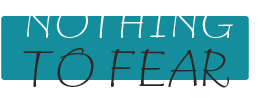
Swiss Policy Research (SPR), founded in 2016, is an independent, nonpartisan and nonprofit research group investigating geopolitical propaganda in Swiss and international media. SPR is composed of independent academics and receives no external funding other than reader donations.
Are Face Masks Effective? The Evidence
Swiss Policy Research (SPR) website
An overview of the current evidence regarding the effectiveness of face masks.
Read Full SPR Article →
(including sources)
Here are key EXCERPTS:
1.
Studies on the effectiveness of face masks
So far, most studies found little to no evidence for the effectiveness of cloth face masks in the general population, neither as personal protective equipment nor as a source control.
So far, most studies found little to no evidence for the effectiveness of cloth face masks in the general population, neither as personal protective equipment nor as a source control.
- A May 2020 meta-study on pandemic influenza published by the US CDC found that face masks had no effect, neither as personal protective equipment nor as a source control.
- A July 2020 review by the Oxford Centre for Evidence-Based Medicine found that there is no evidence for the effectiveness of cloth masks against virus infection or transmission.
2.
Studies claiming face masks are effective
Some recent studies argued that cloth face masks are indeed effective against the new coronavirus and could at least prevent the infection of other people. However, most of these studies suffer from poor methodology and sometimes show the opposite of what they claim. Typically, these studies ignore the effect of other measures, the natural development of infection numbers, changes in test activity, or they compare countries with very different conditions. An overview:
Some recent studies argued that cloth face masks are indeed effective against the new coronavirus and could at least prevent the infection of other people. However, most of these studies suffer from poor methodology and sometimes show the opposite of what they claim. Typically, these studies ignore the effect of other measures, the natural development of infection numbers, changes in test activity, or they compare countries with very different conditions. An overview:
- A meta-study in the journal Lancet, commissioned by the WHO, claimed that masks “could” lead to a reduction in the risk of infection, but the studies considered mainly N95 respirators in a hospital setting, not cloth masks in a community setting, the strength of the evidence was reported as “low”, and experts found numerous flaws in the study. Professor Peter Jueni, epidemiologist at the University of Toronto, called the WHO study “essentially useless”.
- A study in the journal PNAS claimed that masks had led to a decrease in infections in three global hotspots (including New York City), but the study did not take into account the natural decrease in infections and other simultaneous measures. The study was so flawed that over 40 scientists recommended that the study be withdrawn.
3.
Risks associated with face masks
Wearing masks for a prolonged period of time is not harmless, as the following evidence shows:
Wearing masks for a prolonged period of time is not harmless, as the following evidence shows:
- The WHO warns of various “side effects” such as difficulty breathing and skin rashes.
- Tests conducted by the University Hospital of Leipzig in Germany have shown that face masks significantly reduce the resilience and performance of healthy adults.
WHO Mask Study Seriously Flawed, Should Be Retracted →
Dr. Jim Meehan: Why Masks are Ineffective, Unnecessary, and Harmful →
